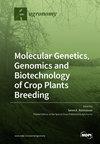Control Efficacy of Natural Products on Broadleaf and Grass Weeds Using Various Application Methods
IF 3.3
2区 农林科学
Q1 AGRONOMY
引用次数: 1
Abstract
Synthetic herbicides have negatively impacted biological organisms and human health. Thus, nonsynthetic herbicides for weed control are needed in organic and conventional agriculture. Nonsynthetic products such as vinegar and detergents are increasingly becoming popular in crop disease treatment, as well as controlling insects and weeds. Therefore, the objective of this study was to determine the herbicidal efficacy of various nonsynthetic products using different application methods. Various nonsynthetic products were applied to grass and broadleaf weeds at 1%, 3%, 5%, and 10% concentrations to test their herbicidal efficacy, and two plant extracts were used as adjuvants. In addition, the inhibitory effects of selected brown rice vinegar and effective microorganisms (EM) powder soap on grass and broadleaf weeds were compared to the inhibitory effects of other vinegars and EM powder soaps. Of the nine various natural products tested, brown rice vinegar and EM powder soap at 5% concentrations were the only applications to completely control grass and broadleaf weeds in Petri dish bioassays. In greenhouse conditions, the shoot fresh weight of Eclipta prostrata, Solanum nigrum, Persicaria hydropier, and Portulaca oleracea was completely inhibited when soil applications of EM powder soap at 10% concentrations were used. EM powder soap was more effective in controlling grass and broadleaf weeds than brown rice vinegar. In addition, brown rice vinegar and EM powder soap did not appear to last long in soil. Two-time application methods were more effective in controlling all weed species than one-time application methods. However, no synergism effects were observed when brown rice vinegar and EM powder soap were combined with other natural products. Brown rice vinegar and EM powder soap did not show adjuvant effects when combined with plant extracts, which can sometimes create better contact with or penetration of the weeds. Thus, weeds growing alongside transplanted vegetable crops can be effectively controlled with brown rice vinegar and EM powder soap by using soil applications in row, either individually or combined together and with either one or two applications.不同施用方法天然产物对阔叶杂草和禾本科杂草的防治效果
合成除草剂对生物有机体和人类健康产生了负面影响。因此,有机农业和传统农业都需要非合成除草剂来控制杂草。醋和洗涤剂等非合成产品在作物病害治疗以及控制昆虫和杂草方面越来越受欢迎。因此,本研究的目的是确定各种非合成产品在不同施用方法下的除草效果。将不同的非合成产品分别以1%、3%、5%和10%的浓度施用于禾草和阔叶杂草,测试其除草效果,并使用两种植物提取物作为佐剂。此外,还比较了选定的糙米醋和有效微生物(EM)粉皂对草和阔叶杂草的抑制效果,并与其他醋和EM粉皂的抑制效果进行了比较。在培养皿生物试验中,在九种不同的天然产品中,只有5%浓度的糙米醋和EM粉皂是完全控制草和阔叶杂草的唯一应用。在温室条件下,施用10%浓度的EM粉末皂完全抑制了黄花、龙葵、木犀草和马齿苋的地上部鲜重。EM粉皂对禾草和阔叶杂草的防治效果优于糙米醋。此外,糙米醋和EM粉皂在土壤中的持续时间不长。两次施药比一次施药对所有杂草的防治效果更好。而糙米醋、EM粉皂与其他天然产物配用时,未见增效作用。糙米醋和EM粉皂在与植物提取物混合使用时没有表现出辅助作用,而植物提取物有时可以更好地与杂草接触或渗透。因此,糙米醋和EM粉皂可以通过连续施用土壤,单独施用或组合施用,并使用一种或两种施用,有效地控制移栽蔬菜作物旁边生长的杂草。
本文章由计算机程序翻译,如有差异,请以英文原文为准。
求助全文
约1分钟内获得全文
求助全文
来源期刊

Agronomy-Basel
Agricultural and Biological Sciences-Agronomy and Crop Science
CiteScore
6.20
自引率
13.50%
发文量
2665
审稿时长
20.32 days
期刊介绍:
Agronomy (ISSN 2073-4395) is an international and cross-disciplinary scholarly journal on agronomy and agroecology. It publishes reviews, regular research papers, communications and short notes, and there is no restriction on the length of the papers. Our aim is to encourage scientists to publish their experimental and theoretical research in as much detail as possible. Full experimental and/or methodical details must be provided for research articles.
 求助内容:
求助内容: 应助结果提醒方式:
应助结果提醒方式:


